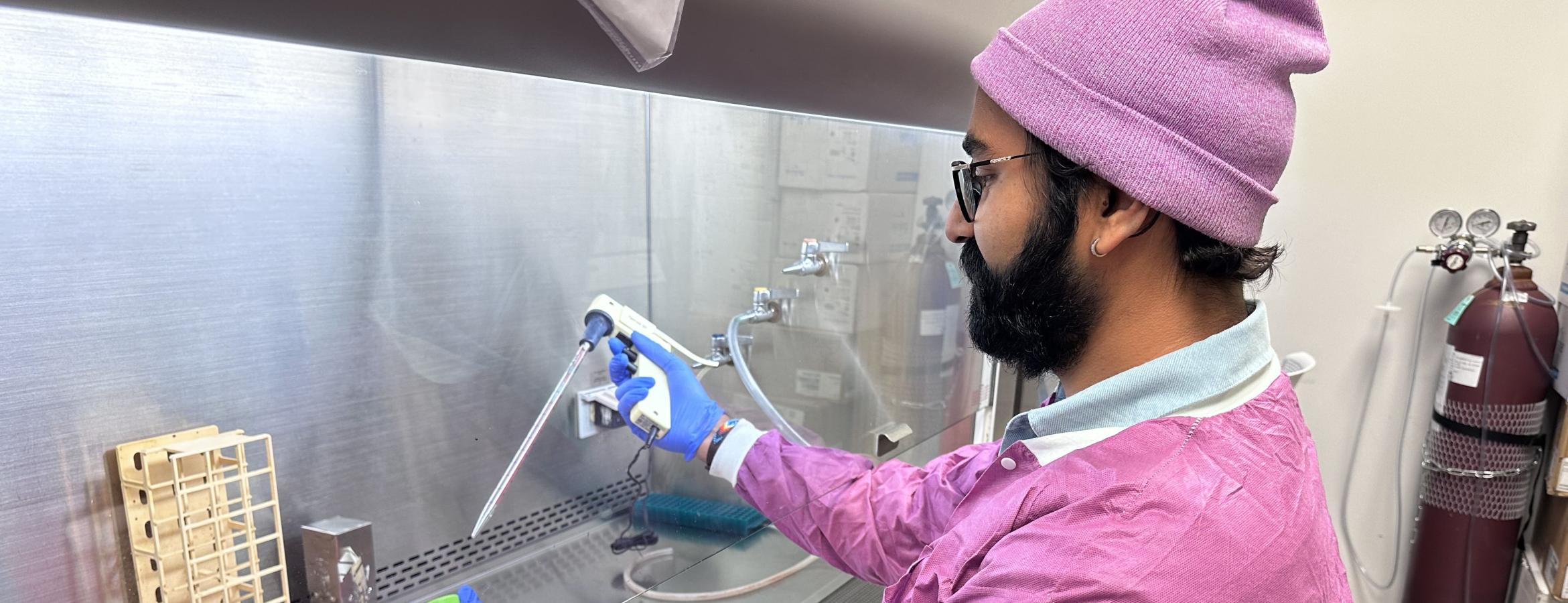Rajat Kumar, a postdoctoral scholar in biochemistry and molecular biology, studies the single-cell origins of sexual dimorphism — the differences between male and female forms of the malaria parasite, Plasmodium falciparum. Kumar also studies antimalarial drug resistance and was recently named a National Postdoctoral Association IMPACT Fellow.
The program is a 16-month cohort-based professional development fellowship for postdocs aimed at increasing access to career-advancement opportunities, especially for those from underrepresented or marginalized groups.
Q: What prompted you to apply for IMPACT?
RK: I was drawn to this fellowship because it offered a unique opportunity to engage in peer mentoring, advocate for inclusive science, and contribute to a cohort of emerging researchers committed to public engagement and translational biomedical impact.
Q: What does being an IMPACT fellow mean to you?
RK: Being an IMPACT fellow represents an opportunity for me to grow both professionally, as an LGBTQ+ researcher, and personally, as an engaged community member. As part of the fellowship, I have proposed to lead a “Science for Equity” initiative to empower postdocs to effectively communicate research on diseases that disproportionately affect socioeconomically disadvantaged communities, ultimately fostering greater awareness of diversity, equity, and inclusion in scientific outreach.
Q: What advice do you have to share with other postdocs interested in applying for IMPACT?
RK: My advice for anyone interested in applying for the IMPACT Fellowship is to approach it as more than a professional development opportunity. It is a training platform to reflect on your values, your voice, and the kind of impact you want to create within the scientific community. Be authentic about your lived experiences and how they shape your perspective as a researcher. And most importantly, be ready to listen, learn, and contribute meaningfully to a network of peers who share a collective commitment to making science more accessible.
Q: How do you hope programs like the IMPACT fellowship will influence the next generation of researchers?
RK: I hope that universities and scientific communities continue to promote more programs like the IMPACT fellowship, which create space for the professional and personal growth of early-career researchers and help cultivate a more inclusive and forward-thinking culture in science.
Q: What is the most important lesson that you will take with you from your time at Penn State?
RK: One of the most important lessons I’ll take from my time at Penn State is the value of community and mentorship. Working in a collaborative parasitology lab with a highly supportive mentor, Manuel Llinás, Ernest C. Pollard Professor in Biotechnology and professor of biochemistry and molecular biology and of chemistry, and an exceptional group of lab friends has taught me that impactful science thrives not just on technical excellence, but on empathy, communication, and shared purpose. It’s been especially meaningful because it showed me that leadership in research is as much about connection and compassion as it is about discovery.
